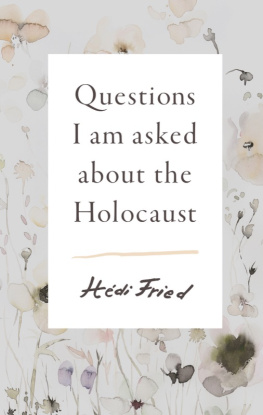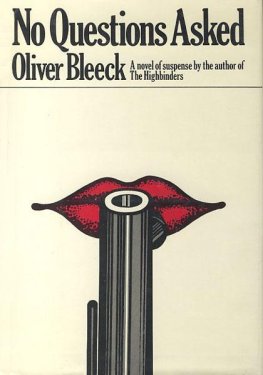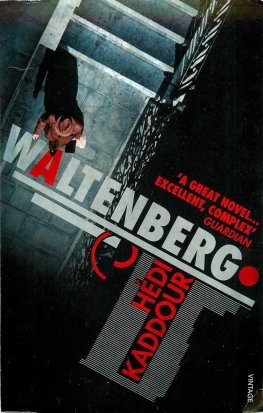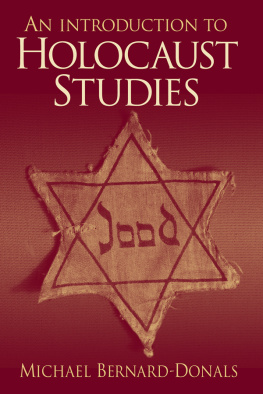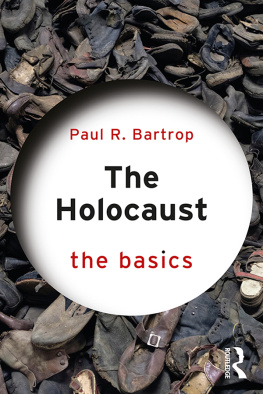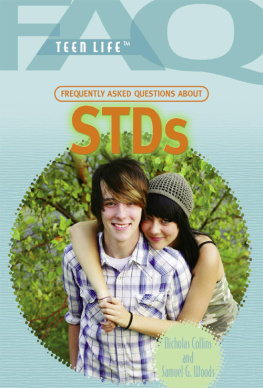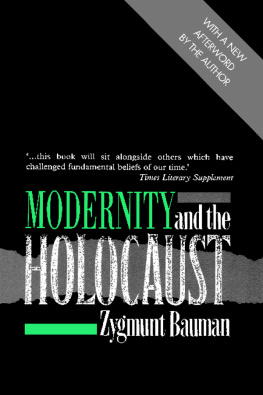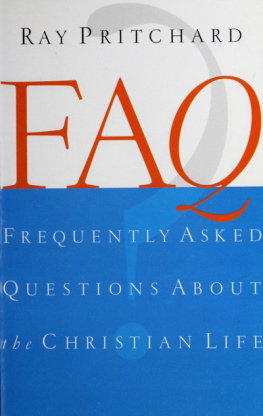Hédi Fried - Questions I Am Asked About The Holocaust
Here you can read online Hédi Fried - Questions I Am Asked About The Holocaust full text of the book (entire story) in english for free. Download pdf and epub, get meaning, cover and reviews about this ebook. year: 2019, publisher: Scribe US, genre: Non-fiction / History. Description of the work, (preface) as well as reviews are available. Best literature library LitArk.com created for fans of good reading and offers a wide selection of genres:
Romance novel
Science fiction
Adventure
Detective
Science
History
Home and family
Prose
Art
Politics
Computer
Non-fiction
Religion
Business
Children
Humor
Choose a favorite category and find really read worthwhile books. Enjoy immersion in the world of imagination, feel the emotions of the characters or learn something new for yourself, make an fascinating discovery.
- Book:Questions I Am Asked About The Holocaust
- Author:
- Publisher:Scribe US
- Genre:
- Year:2019
- Rating:5 / 5
- Favourites:Add to favourites
- Your mark:
- 100
- 1
- 2
- 3
- 4
- 5
Questions I Am Asked About The Holocaust: summary, description and annotation
We offer to read an annotation, description, summary or preface (depends on what the author of the book "Questions I Am Asked About The Holocaust" wrote himself). If you haven't found the necessary information about the book — write in the comments, we will try to find it.
Questions I Am Asked About The Holocaust — read online for free the complete book (whole text) full work
Below is the text of the book, divided by pages. System saving the place of the last page read, allows you to conveniently read the book "Questions I Am Asked About The Holocaust" online for free, without having to search again every time where you left off. Put a bookmark, and you can go to the page where you finished reading at any time.
Font size:
Interval:
Bookmark:

QUESTIONS I AM ASKED ABOUT THE HOLOCAUST
HDI FRIED (b. 1924) is an author and psychologist. She is deeply committed to working for democratic values and against racism. She was born in the town of Sighet, in Romania, was transported to Auschwitz in 1944, and worked in several labour camps, eventually ending up in Bergen-Belsen. After liberation, she came to Sweden with her sister, and has lived there ever since.
Her bestselling autobiography, Fragments of a Life: the road to Auschwitz , was published in English and Swedish in the 1990s.
ALICE E. OLSSON is a literary translator, writer, and editor working across Swedish and English. She is currently pursuing a PhD in Comparative Literature at University College London, specialising in literature and human rights.
For all the young people around the world
Scribe Publications
2 John St, Clerkenwell, London, WC1N 2ES, United Kingdom
1820 Edward St, Brunswick, Victoria 3056, Australia
3754 Pleasant Ave, Suite 100, Minneapolis, Minnesota 55409 USA
Originally published in Swedish as Frgor jag ftt om Frintelsen
by Natur & Kultur in 2017
Published by agreement with Partners in Stories Stockholm AB
First published in English by Scribe in 2019
Text copyright Hdi Fried 2017
Translation copyright Alice E. Olsson 2019
All rights reserved. Without limiting the rights under copyright reserved above, no part of this publication may be reproduced, stored in or introduced into a retrieval system, or transmitted, in any form or by any means (electronic, mechanical, photocopying, recording or otherwise) without the prior written permission of the publishers of this book.
The moral rights of the author and translator have been asserted.
9781911617778 (UK edition)
9781925713800 (Australian edition)
9781947534599 (US edition)
9781925693447 (e-book)
CiP records for this title are available from the British Library and the National Library of Australia.
scribepublications.co.uk
scribepublications.com.au
scribepublications.com
Nr sorgen kommer, som nr natten skymmer
i vilda skogen, dr en man gr vill,
vem tror p ljuset, som i fjrran rymmer,
Och sken som skymta fram och flmta till?
P skmt de glimta och p skmt de flykta,
vem tar en lyktman fr en man med lykta?
When sorrow comes, as when night falls
in the wild woods, where a man goes astray,
who believes in the light that in the distance calls,
And the glow that appears and then fades away?
In jest does it fade and in jest does it burn,
who takes a lantern-man for a man with a lantern?
Solace, Gustaf Frding,
translated by Alice E. Olsson
Contents
Preface
Many years have passed since I wrote my autobiography, Fragments of a Life: the road to Auschwitz, and the subsequent books. Since then, I have lectured in schools and universities with the strong conviction that the younger generation must keep the memory of the Holocaust alive if we want to ensure that it is never repeated. What has happened once may unfortunately happen again, if not in exactly the same way. To prevent this, it is important to remember; the past leaves its mark on the present and casts its shadow over the future.
In the beginning of September 1940, Northern Transylvania was returned to Hungary from Romania. At first, I was in despair. The persecution of Jews began, although there was not yet a direct threat to our lives. It did not take long, however, until news came from Romania that Jews there were being sent to Ukraine, where they were forced to dig their own graves before being shot. Then I was happy that we belonged to Hungary. I grew accustomed to our reduced circumstances, and was glad that we were no longer under Romanian rule. I can still see myself knitting woollen socks for the poor souls who were transported in freezing trains from Romania to Ukraine, in the middle of winter, who had not been allowed to bring any warm clothing. Then came March 1944, the invasion of the Germans, and now I had every reason to mourn that we no longer belonged to Romania. The Romanians did not hand over their Jews to the Germans; instead they were paid $100 for every person who was allowed to leave for Israel.
In the end, I was one of the lucky ones. I was lucky many times over.
My luck began at the time of our arrival to Auschwitz, where my sister and I survived the selection and were spared from the gas chambers. Fortuitous events then repeated themselves several times during my year in captivity. Most importantly, I did not end up in one of the worst labour camps.
From Auschwitz, I was sent to three different labour camps, where we were usually tasked with clearing up among the ruins. Many others were placed in camps where they had to work in shifts in underground factories, mines, or quarries. Several times, I found myself in situations when I was certain that my last moment had come, but something happened, and I survived.
In the camps, you never knew if a change would mean life or death. Though sometimes you dont know that in everyday life, either. We live a quiet life, the days go by, we dont notice anything. The change occurs little by little until the picture is suddenly clear and we wonder: how could this have happened? Life teaches us that everything can change in a moment, and you never know beforehand whether the change is going to lead to something better or worse.
My school lectures usually consist of three parts, with emphasis on the third. They start with an attempt to portray the people of the past and their living conditions, which contributed to making the Holocaust possible; they continue with the story of my own experiences; and they end with ample time for questions.
I stress that there are no stupid questions, nor any forbidden ones, but that some questions have no answer. There is, for example, no single answer to the question Why did the Holocaust happen? This makes the other questions surrounding it all the more important.
I have gathered the most common questions that I am asked in this book, to help those who want to know more about the Holocaust. My hope is that it will be read by and benefit the young people of today and of tomorrow.
The aim of this book is to teach us to avoid historical mistakes. I hope that it can make everyone who reads it see that we are not predestined to step into the role of either perpetrator or bystander. As individuals, we have a will and a responsibility, and only by taking that responsibility can we avoid history repeating itself once again.
Hdi Fried, December 2016 (updated July 2018)
What is the worst thing that has happened to you?
If you are asking what the single worst thing that has happened to me is, I can answer with one sentence: the moment I was separated from my parents.
But I want to give a longer answer; I will tell you about the road that led there. The Germans planned extermination of the Jews was a very slow process, very cleverly calculated. Just as the eye cannot observe the gradual metamorphosis of a flower from bud to rose in full bloom, we too did not notice the small, almost imperceptible steps that would lead, eventually, to the full execution of their plan to that which you could not imagine, even in your wildest dreams. All of a sudden, a change for the worse was introduced, but you could live with it. It would pass, we thought. It did not pass. Instead, there was another change. Once again, we reacted by hoping that it too would soon pass. We never knew what the next change would be or when it would come.
Despite everything I have been through, I was lucky. The worst thing that could happen to a person did not happen to me. To begin with, I was not caught in the Germans net until the eleventh hour of the war, the spring of 1944, when the majority of Europes Jews had already been taken prisoner.
Next pageFont size:
Interval:
Bookmark:
Similar books «Questions I Am Asked About The Holocaust»
Look at similar books to Questions I Am Asked About The Holocaust. We have selected literature similar in name and meaning in the hope of providing readers with more options to find new, interesting, not yet read works.
Discussion, reviews of the book Questions I Am Asked About The Holocaust and just readers' own opinions. Leave your comments, write what you think about the work, its meaning or the main characters. Specify what exactly you liked and what you didn't like, and why you think so.

